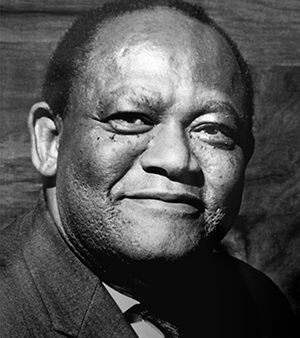
The late Prof Zacharia Keodirelang (ZK) Matthews was a remarkable South African lawyer, freedom fighter and academic. His legacy continues to inspire current generations. Born on 20 October 1901 in Winter’s Rush, his family moved to Kimberley in the Northern Cape Province. He grew up in a politically aware family – his cousin was Solomon Tshekisho Plaatje (Sol Plaatje), a founding member of the African National Congress (ANC).

Prof ZK Matthews
He made history through education, completing a Bachelor of Arts (BA) at Fort Hare University; at the time, their students were examined by Unisa. In 1923, he became the first Black South African to earn a Bachelor of Laws degree (LLB) at Unisa. He was later admitted as an attorney to the Johannesburg Bar and the Transvaal division of the Supreme Court. Matthews was the first African to earn both a BA and LLB at a Southern African Institution. His academic journey took him to Yale University in the United States, where he obtained a Master’s degree in Anthropology.
In 1936, Matthews returned to Fort Hare as a lecturer in Social Anthropology and Native Law and Administration, using this opportunity to mentor students and introduce them to a new African consciousness. He committed the first part of his life exclusively to education. From around 1940, he began presenting political and educational issues about the black narrative, emphasising the present and future possibilities for African people.
He also committed to public service, which included the Ciskeian Missionary Council, the Royal Commission on Higher Education for Africans in British East Africa and the Federation of African Teachers Association.
Matthews left an indelible mark on Unisa, both through his distinguished academic career and his influence in shaping the institution’s intellectual and political character. On 18 September 2002, the university named its graduation hall the ZK Matthews Great Hall, to honour his contributions to the democratic South Africa.
Matthews was a member of the African National Congress (ANC) and contributed to drafting the ANC's 1949 Programme of Action, inspired by the ANC Youth League’s call for mass mobilisation. In 1955, the successful Congress of the People was held in Kliptown, where the Freedom Charter was adopted. Following this, Matthews was among those arrested and charged with treason, as the state launched a wave of arrests targeting political leaders. In 1952, Matthews left South Africa to occupy a position at New York’s Union Theological Seminary.
In 1960, after being detained without trial for 135 days during the State of Emergency, Matthews joined then ANC President, Albert Luthuli, in calling for consultations among African leaders. In 1961, he moved to Geneva to become secretary of the African division of the World Council of Churches. The fact that he found his political home in the ANC made him more involved in politics, and he became a key voice speaking up about African concerns. Additionally, Matthews used his position on the Natives’ Representative Council (NRC) to argue the African cause with consistency and force, and chaired the committee that drafted African claims.
History is not just a collection of facts; it is a carefully shaped reality influenced by socially mediated notions. The legacy is seen not only in the stories told but also in the symbols of remembrance, such as the names of streets, buildings and museums. The city of Durban, located in KwaZulu-Natal Province, also renamed Nicholson Road after the late ZK Matthews. This was done to honour the struggle and celebrate the African identity and Matthews’s life.
Matthews’s academic and political journey bears testament to the fact that, despite the struggles and obstacles we face in life, there lies hope in gaining education and utilising it as a weapon to overcome adversity, inspire change and build a legacy.
Matthews was rewarded for his ground-breaking achievement in education and lifetime contribution to the struggle for a non-racial, non-sexist and democratic South Africa.
Matthews was Botswana’s first ambassador to the USA and envoy to the UN. He died of a heart attack in Washington, USA, in 1968. He was laid to rest in Gaborone, Botswana.
* By Lethabo Nkogatse, Intern: Unisa Foundation and Alumni Relations
Publish date: 2025-08-15 00:00:00.0